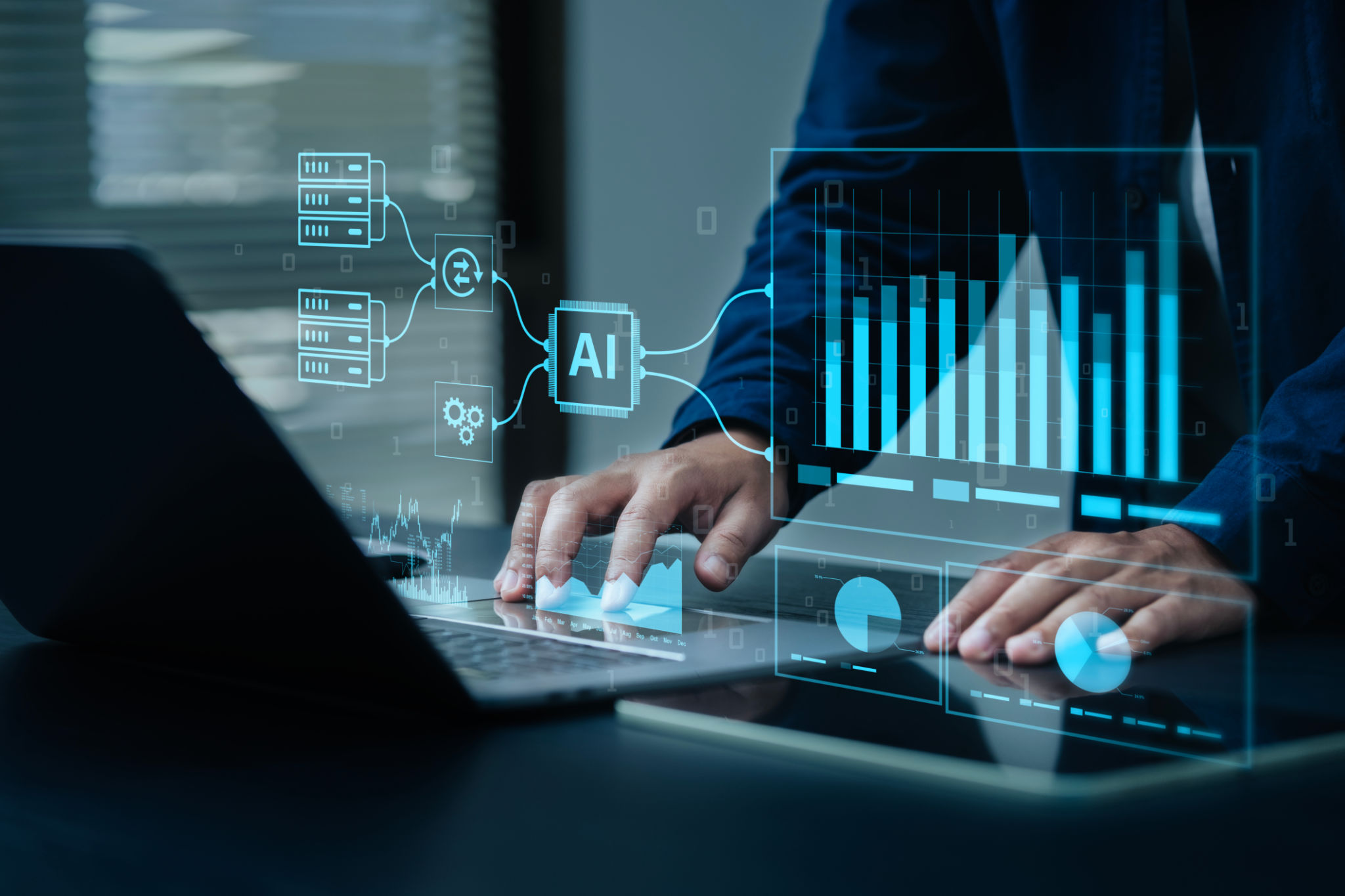Maximizing Productivity: The Role of AI in Modern Workplaces
The Evolution of Productivity Tools
The modern workplace has been undergoing a transformation, largely driven by advances in technology. One of the most significant developments in recent years is the integration of Artificial Intelligence (AI) into daily work processes. AI is not just a futuristic concept anymore; it is a practical tool that is being leveraged to enhance productivity across various industries.
From automating repetitive tasks to providing insights through data analysis, AI has become an indispensable asset for businesses aiming to maximize efficiency. The role of AI in modern workplaces is multifaceted and continuously evolving to meet the changing demands of the workforce.

Automation of Routine Tasks
A major advantage of AI in the workplace is its ability to automate routine and mundane tasks. This allows employees to focus on more strategic initiatives that require human creativity and decision-making skills. For example, AI can handle data entry, appointment scheduling, and customer inquiries, freeing up valuable time for workers.
By integrating AI tools into their operations, businesses can significantly reduce the time spent on these tasks, leading to improved productivity and overall job satisfaction among employees. The reduction in manual labor not only speeds up processes but also minimizes human error.
Enhanced Decision-Making with Data
AI is also revolutionizing how decisions are made in the workplace. Through advanced algorithms and machine learning, AI can analyze vast amounts of data and provide actionable insights. These insights help businesses make informed decisions quickly, which is crucial in today’s fast-paced environment.
For instance, AI can predict market trends, customer preferences, and potential business risks, allowing companies to strategize effectively. By relying on data-driven decisions, organizations can optimize their operations and stay ahead of the competition.

Improving Communication and Collaboration
In addition to boosting productivity through task automation and data analysis, AI plays a significant role in enhancing communication and collaboration within teams. AI-powered tools such as chatbots, virtual assistants, and collaborative platforms facilitate seamless interaction among team members, regardless of their location.
These tools ensure that communication is efficient and effective, reducing the likelihood of misunderstandings and delays. By fostering a collaborative work environment, AI helps teams work together more harmoniously and productively.
Personalized Work Experiences
AI has the potential to create personalized work experiences by adapting to individual employee needs and preferences. Through continuous learning and adaptation, AI systems can tailor tasks and workflows according to an employee's strengths and areas for improvement.
This personalized approach not only enhances productivity but also boosts employee engagement and satisfaction. By creating a work environment that aligns with individual capabilities, businesses can foster a more motivated and proactive workforce.

Challenges and Considerations
While AI offers numerous benefits, it also presents challenges that businesses must navigate carefully. One concern is the fear of job displacement due to automation. However, rather than replacing human workers, AI should be viewed as a tool that complements human capabilities.
Organizations must invest in training programs to help employees adapt to new technologies and develop skills that are critical in an AI-driven world. By addressing these challenges head-on, businesses can harness the full potential of AI while maintaining a supportive work environment.
The Future of AI in Workplaces
As AI technology continues to advance, its role in the workplace will undoubtedly expand. Future developments may include more sophisticated AI systems capable of handling complex tasks and providing deeper insights. The integration of AI into business strategies will become even more essential for companies looking to remain competitive.
In conclusion, the role of AI in modern workplaces is pivotal for maximizing productivity. By leveraging AI for automation, decision-making, communication, and personalization, businesses can achieve greater efficiency and success. As we move forward, embracing AI will be key to thriving in an increasingly digital world.